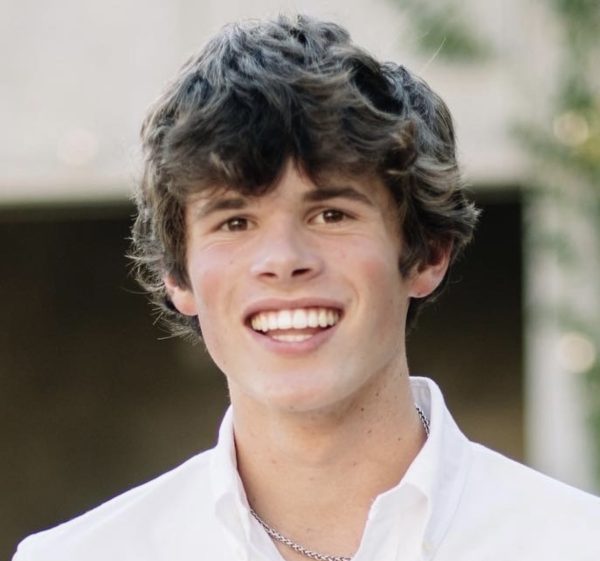On July 24, hundreds of University of Utah faculty and staff signed a letter that was submitted to the university’s administrators. The letter condemned the abrupt closure of several campus resource centers in June, just days before H.B. 261 took effect on July 1.
“We are writing to express our strong opposition to the closure of these vital student centers,” the letter read. “We have several concerns regarding the safety and well-being of underrepresented students, alongside our deep upset over the lack of consultation with us and the surrounding community about these changes.”
Faculty Frustration
The closures, which affected the LGBT Resource Center, Black Cultural Center and Women’s Resource Center, have drawn criticism for their timing and execution. Lisa Aspinwall, professor of psychology and co-author of the letter, shared her concerns about the U’s decision.
“The lack of consultation and the appearance of lack of planning and no plan for continuity of services absolutely troubles me deeply,” Aspinwall said. “The stakes couldn’t be higher.”
Kendall Gerdes, an associate professor of writing and rhetoric studies and president of the university’s chapter of the American Association of University Professors talked about the essential role these centers played in student support.
“Academic success depends on having the emotional, social and material support to stay in school,” Gerdes said. “The university did not have to close these centers.”
Gerdes also argued the closures contradicted earlier alleged claims from university administrators that the centers would remain open despite the passing of H.B. 261.
“They utterly failed to communicate with the campus community about their decisions,” Gerdes said. “Telegraphing earlier this year that the centers would be fine and then abruptly deciding to shutter the centers in June.”
The closures were particularly troubling for student staff members at the LGBT Resource Center. Some members learned of the decision through an Instagram post announcing its farewell event.
“That’s not how students should be treated by their university,” Gerdes said.
New Centers Make Way
The university’s response to H.B. 261 included the creation of the Center for Community and Cultural Engagement and the Center for Student Access and Resources. Yet Gerdes argued that it does not replace the specificity of the support provided by the closed centers.
“I hope that the new Center for Community and Cultural Engagement thrives and that the staff are supported with the resources they need to do their work well,” Gerdes said. “The university owes them that; it owes its students that.”
In reaction to the closures, students also quickly organized a new Student Pride Center. It operates part-time out of the Marriott Library.
“One group of students took immediate action in the wake of the LGBT center closure,” Gerdes said. “Students should make their voices heard.”
The new Student Pride Center is open Mondays, Wednesdays and Fridays from 9 a.m. to 5 p.m., Gerdes said. It operates out of room 2130N in the Marriott Library.
The U’s New Future
The letter, which remains open for signatures from faculty and staff, has now gained over 900 signees. Aspinwall and other faculty members are ultimately concerned about the long-term impact the closures will have on the university’s ability to attract and retain a diverse student and faculty body.
“There’s a carve-out for some programs,” Aspinwall said, “but you can’t carve out campus climate changes.”
University President Taylor Randall addressed the backlash in an Academic Senate session on Aug. 26, nearly a month after the initial letter was sent to administrators.
“I understand the urgency and the need to make sure people feel a sense of belonging,” Randall said. “And I deeply appreciate the faculty and staff who are working toward that goal.”
Despite this acknowledgment, Aspinwall and others remain critical of the university’s handling of the situation.
“The lack of planning and consultation sends a devastating message,” Aspinwall said. “Especially to students and faculty who have worked for decades to create an inclusive environment.”
In a press conference with The Daily Utah Chronicle, Randall said the U plans to ask the Utah Board of Higher Education for approval on a reorganized Black Cultural Center and LGBT Resource Center if the Center for Community and Cultural Engagement gets approved.
“Our plan is, we get this umbrella center approved, and then you will actually see, in relatively short order, a Black Cultural Center and LGBTQ Center that will come up underneath it,” Randall said.
U Leadership’s Response
Provost Mitzi Montoya and Vice President for Student Affairs Lori McDonald have since submitted a formal response to the original faculty letter. They acknowledged the closures as a “seismic shift” but emphasized the university’s continued commitment to fostering an inclusive campus.
Montoya and McDonald also highlighted efforts to improve academic support and safety, encouraging further discussion and faculty involvement. Despite the changes, they reaffirmed their dedication to student success and campus community-building.
“Much has changed, but the commitment to support students through their individual challenges — and the frontline staff who have dedicated their careers to doing so — remains the same.”
This article was updated on Sept. 18, 2024 at 8:30 p.m. MST to include the response from Montoya and McDonald.





Charles Milne • Sep 17, 2024 at 11:18 am
Need me to save you in a media crisis again?